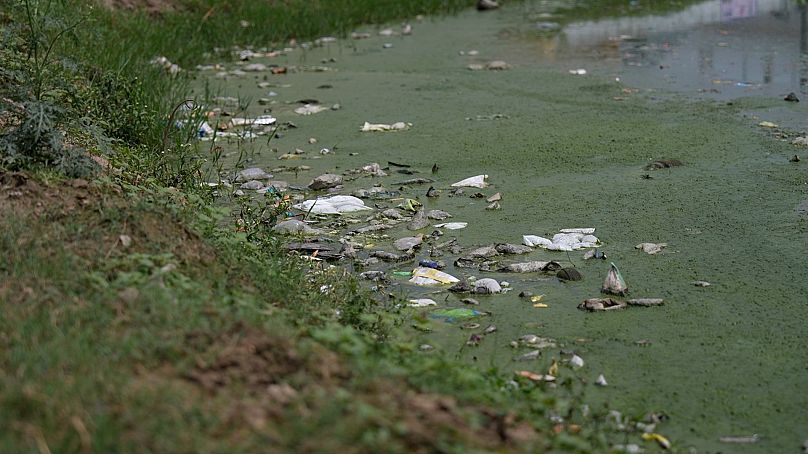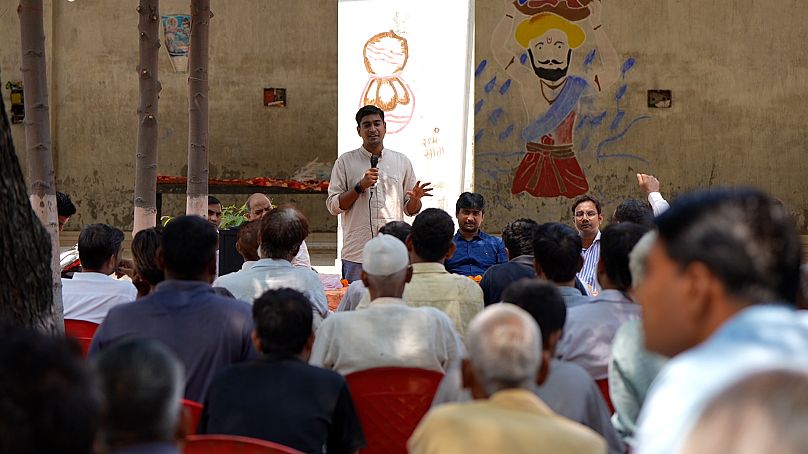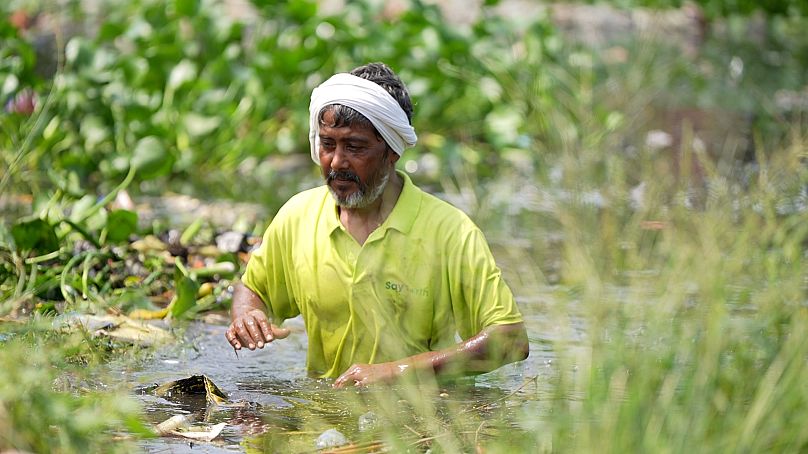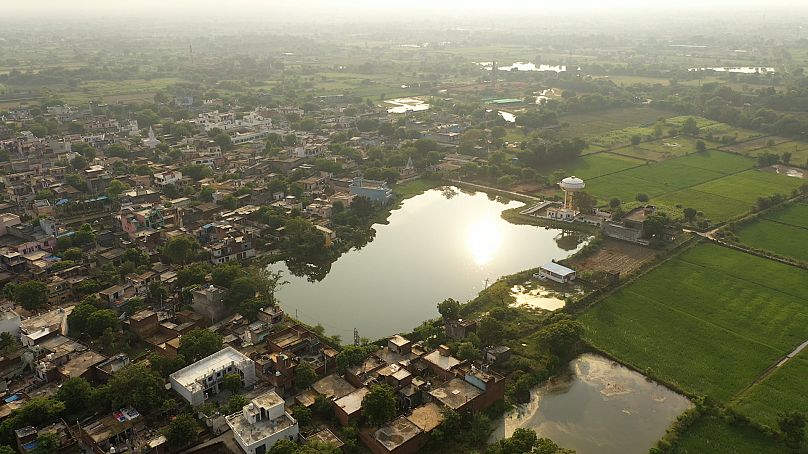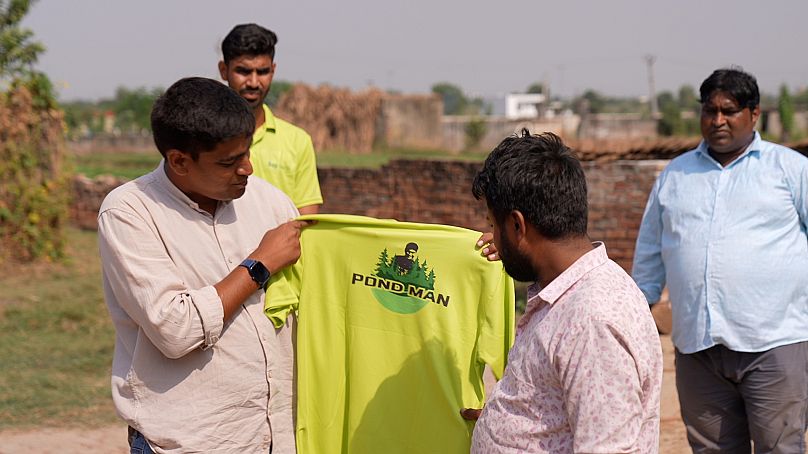"Our purpose is not only to fill the pond with water but also to promote biodiversity."
SCENES shines a spotlight on youth around the world that are breaking down barriers and creating change. The character-driven short films will inspire and amaze, as these young change-makers tell their remarkable stories.
In his hometown of Uttar Pradesh, India, Ramveer Tanwar is considered a superhero with his nickname to boot. Dubbed the Pondman of India, Ramveer's mission is to restore and rehabilitate polluted ponds nationwide. To date, his efforts have culminated in the restoration of approximately 80 ponds in six states.
For Ramveer, healthy ponds remind him of his childhood.
"I used to take the buffaloes for a bath in the water canal every day. In these ponds, I learnt to swim." Ramveer recalls.
However, Ramveer's fond memories were tarnished by waste management issues and residents discarding their household trash into the ponds, turning them into dirty swamps.
"There are different kinds of ponds in different districts, in different villages. Every pond had a different kind of problem," Ramveer tells SCENES.
Before Ramveer comes to the rescue, the ponds are littered with garbage, choked with water hyacinths or plagued with pollutants. The country ranks among the lowest in the world for water quality. According to the global data platform Statista, 70 per cent of the country's freshwater sources are contaminated.
Water meetings
Determined to revert them to the pristine ponds of his youth, Ramveer rallied the support of the villagers through open dialogue.
"We call it 'Jal Chaupal', meaning water meeting. We discuss water-related things with the villagers," he explains.
Ramveer used social media to garner more support as his work moved toward pond restoration.
"Seeing what it has become now, it is a delightful feeling," says Jai Bhagwan, a resident of Shakalpura village.
Like Jai, many residents benefiting from Ramveer's restoration projects now praise him. But Ramveer's work hasn't always been revered, particularly not by his town folk.
"People used to think that this is very lowly work and it brings disrepute to the village because educated boys do this kind of work there," he says
Often, he had to reposition his approach to align more closely with the values and perspectives of the local villagers. When asked why he does what he does, Ramveer would tell them he wants to keep the fish alive. His approach proved effective in helping them understand and accept it as a worthy cause.
Risky business
"It is definitely a challenge for my team," Ramveer says, "getting into the water is like inviting an infection into yourself. Sometimes, the weed has snakes. We have to be very careful."
Ramveer's teammates concur. Usman Ali cites that many of the issues stem from not knowing what lurks beneath the surface.
"It is indeed a risky job," the Bulandshahr city native admits, "a lot of hurdles come our way, but we do not stop and keep pushing forward despite huge challenges."
Flanked by a dedicated team, work begins for the Pondman of India. For Ramveer, finding the source of pollution starts with demarcating the area. Then comes the removal process. Weeds, waste and dirty water are taken away, leaving a layer of plastic at the bottom. The waste plastic is segregated and given to various vendors to recycle.
After that, the pond is divided into several portions to ensure that dirty and clean water is channelled separately.
Establishing an ecosystem
The final step is beautification. The team fence the area off and plant trees around it.
To encourage wildlife, sometimes the Pondmen build islands in the middle of the pond for birds to nest on.
"Our purpose is not only to fill the pond with water but also to promote biodiversity," Ramveer explains.
Nearly a decade on, Ramveer rarely faces resistance from others. But he's met with a different struggle.
"How many ponds will I be able to save?" he asks, "restoring is one thing, but making them self-sustainable is very important."
Strategies for self-sustainability
As the tale goes, every superhero needs a trusted sidekick. Ramveer takes it upon himself to identify and appoint Pondmen in every village he's worked with. By connecting them to the mission, Ramveer has created an army of Pondmen.
"I tell them that from now on, they are the Pondman of this village," he says.
"The number of Pondmen should be more than the number of those ruining them," Ramveer hopes.
Ramveer's campaign continues beyond education and Pondmen appointments. Wanting more and more people to have a stake in keeping the ponds pristine, he also allocates spaces around the pond for villagers to grow vegetables. This way, they will consider it their own and benefit from keeping the pond clean. He hopes the conversation around protecting ponds will carry on.













